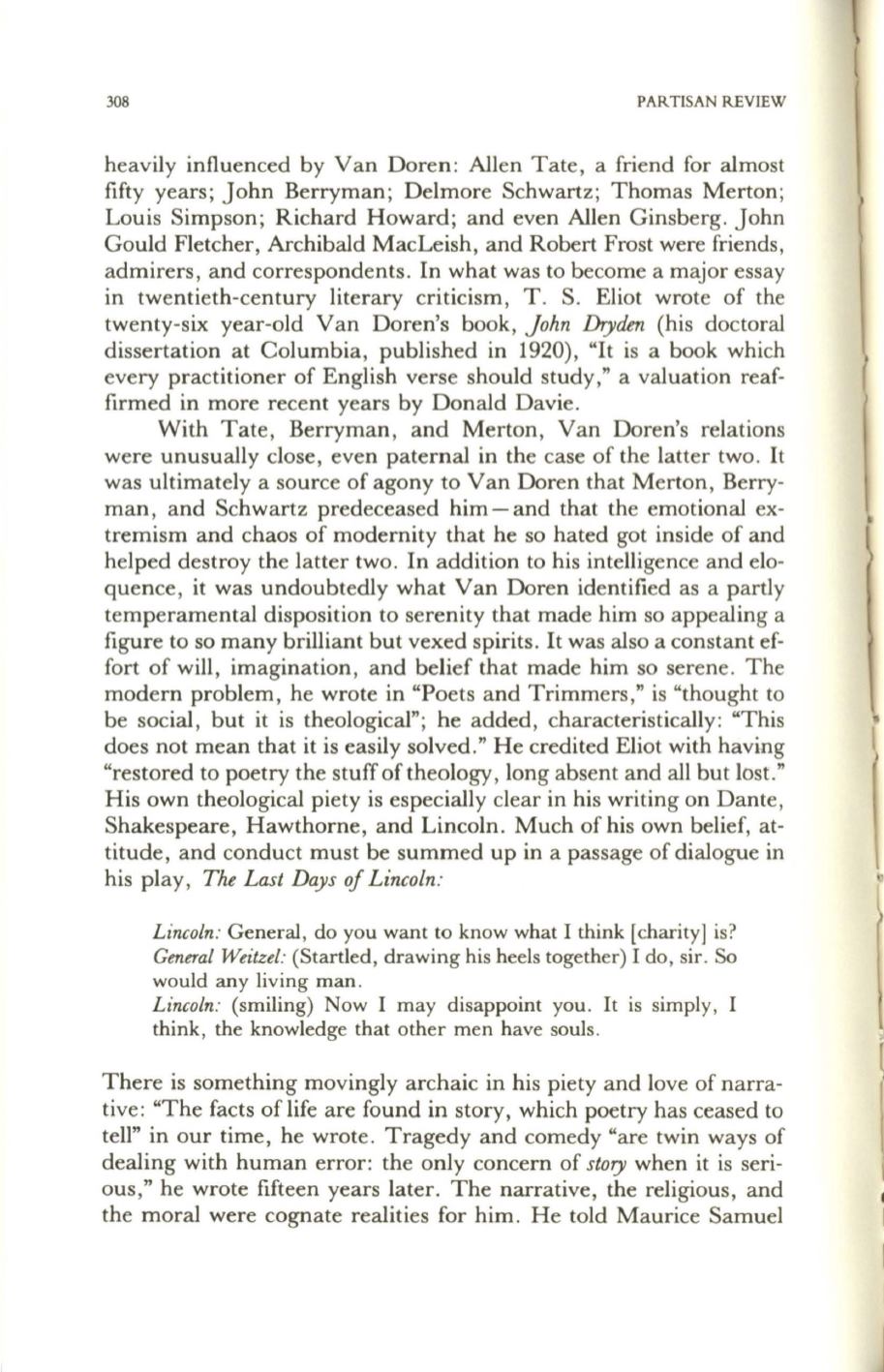
308
PARTISAN REVIEW
heavily influenced by Van Doren: Allen Tate, a friend for almost
fifty years; John Berryman; Delmore Schwartz; Thomas Merton;
Louis Simpson; Richard Howard; and even Allen Ginsberg. John
Gould Fletcher, Archibald MacLeish, and Robert Frost were friends,
admirers, and correspondents. In what was to become a major essay
in twentieth-century literary criticism,
T.
S. Eliot wrote of the
twenty-six year-old Van Doren's book,
John Dryden
(his doctoral
dissertation at Columbia, published in 1920), "It is a book which
every practitioner of English verse should study," a valuation reaf–
firmed in more recent years by Donald Davie .
With Tate, Berryman, and Merton, Van Doren's relations
were unusually close, even paternal in the case of the latter two . It
was ultimately a source of agony to Van Doren that Merton, Berry–
man, and Schwartz predeceased him-and that the emotional ex-
tremism and chaos of modernity that he so hated got inside of and
i
helped destroy the latter two . In addition to his intelligence and elo-
quence, it was undoubtedly what Van Doren identified as a partly
temperamental disposition to serenity that made him so appealing a
figure to so many brilliant but vexed spirits . It was also a constant ef–
fort of will, imagination, and belief that made him so serene. The
modern problem, he wrote in "Poets and Trimmers," is "thought to
be social, but it is theological"; he added, characteristically: "This
does not mean that it is easily solved." He credited Eliot with having
"restored to poetry the stuff of theology , long absent and all but lost."
His own theological piety is especially clear in his writing on Dante,
Shakespeare, Hawthorne, and Lincoln. Much of his own belief, at-
titude, and conduct must be summed up in a passage of dialogue in
his play,
The Last Days of Lincoln:
Lincoln:
General, do you want to know what I think [charity] is?
General Weitzel:
(Startled, drawing his heels together) I do , sir. So
would any living man.
Lincoln:
(smiling) Now I may disappoint you. It is simply,
think, the knowledge that other men have souls .
There is something movingly archaic in his piety and love of narra–
tive: "The facts of life are found in story, which poetry has ceased to
tell" in our time, he wrote . Tragedy and comedy "are twin ways of
dealing with human error: the only concern of
story
when it is seri–
ous," he wrote fifteen years later. The narrative, the religious , and
the moral were cognate realities for him. He told Maurice Samuel


